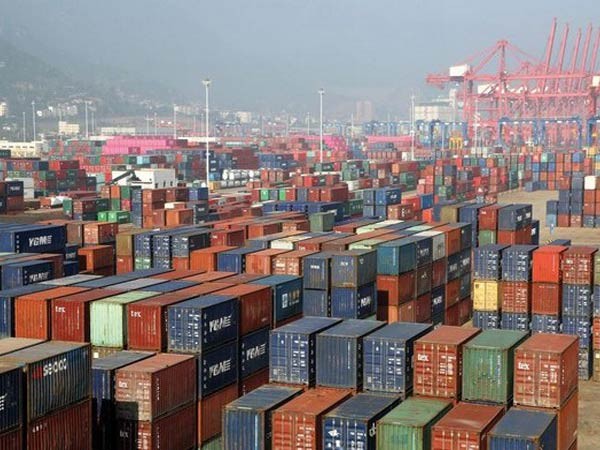
S. Korea's exports log steeper on-year fall in November
Dec 01, 2022
Seoul (South Korea), December 1: South Korea's exports fell for the second consecutive month on-year in November and the decline accelerated from the previous month due to the global economic slowdown and logistics disruptions over a truckers' strike, the trade ministry said Thursday.
The country also suffered a trade deficit for the eighth straight month on high global energy prices, ringing an alarm over its growth momentum.
Outbound shipments fell 14 percent on-year to come to US$51.91 billion last month, following a 5.7 percent on-year fall the previous month, according to the data compiled by the Ministry of Trade, Industry and Energy.
It is the first time since early 2020 that exports fell for the second month in a row. South Korea last reported declining exports for more than two months from March through August in 2020.
The country's imports grew 2.7 percent on-year to $58.93 billion in November on high global energy prices, resulting in a trade deficit of $7.01 billion.
Imports have exceeded exports in South Korea since April, and it is the first time since 1997 that the country has suffered a trade deficit for the eighth straight month.
South Korea depends on imports for most of its energy needs, and the country's energy imports surged 27.1 percent on-year to $15.51 billion in November, the ministry said.
The fall in exports was blamed on the global economic slowdown amid high inflation and aggressive monetary tightening by major economies, as well as the impacts of the ongoing truckers' strike that began Nov. 24 over minimum freight rates, according to the ministry.
The nationwide walkout has caused supply disruptions in major industries, and it is feared to affect the broader economy by hurting overseas shipments, according to officials. The government ordered truckers to return to work, while their negotiations have made no progress.
A high base effect was also behind the exports fall last month, as exports spiked 31.9 percent on-year in November last year, the ministry said.
For the first 11 months of this year, however, exports grew 7.8 percent to come to an all-time high of $629.1 billion, the ministry said.
By item, overseas sales of semiconductors, a key export item, tumbled 29.8 percent on-year to $8.45 billion in November on falling demand and the drop in chip prices, the data showed.
The chip exports have logged an on-year decline since August.
Sales of petrochemicals also fell 26.5 percent to $3.55 billion, and exports of steel products decreased 10.6 percent to $2.99 billion last month. Exports of ships sank 68.2 percent to $1.12 billion.
But car exports jumped 31 percent to $5.4 billion, an all-time monthly high, and sales of petroleum products advanced 26 percent to $4.88 billion.
Shipments of auto parts inched up 0.9 percent to $1.86 billion, and those of secondary batteries rose 0.5 percent to $740 million last month, the data showed.
By nation, exports to China, South Korea's No. 1 trading partner, fell 25.5 percent to $11.38 billion last month on the economic slowdown in China.
Shipments to the Association of Southeast Asian Nations (ASEAN) also slid 13.9 percent to $9.08 billion. ASEAN comprises Brunei, Cambodia, Indonesia, Laos, Malaysia, Myanmar, the Philippines, Thailand, Singapore and Vietnam.
But South Korea's exports to the United States rose 8 percent to $8.79 billion, and those to the European Union added 0.1 percent to $5.3 billion, the data showed.
Exports bound for the Commonwealth of Independent States grew 4.6 percent to $1.29 billion in November due to low base effects, the ministry said.
"Given our high dependence on the global economic situation, it is necessary to revive export momentum to seek a breakthrough," Industry Minister Lee Chang-yang said.
"The government will thoroughly carry out tailor-made export promotion strategies, such as diversifying items and better supporting local exporters."
Source: Yonhap









